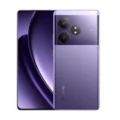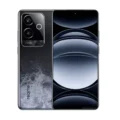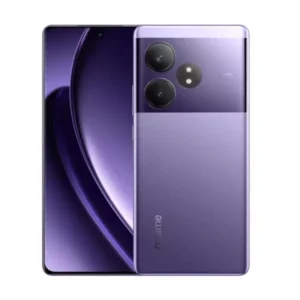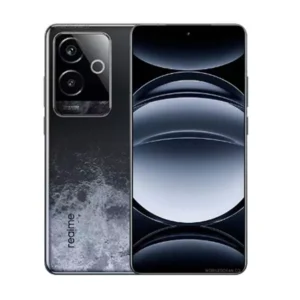- All Products
- Compare
- Realme GT 7 Pro vs Realme GT 6 Comparisons
Realme GT 7 Pro vs Realme GT 6 Comparisons
General
| Device Type | Smartphone Smartphone |
| Model | Realme GT Neo 6 Realme GT 7 Pro |
| Status | Available Coming Soon |
| Price | ৳.35,000 Coming soon |
Hardware
| Chipset Chipset is a group of integrated circuits designed to perform one or a more dedicated functions, often with real time computing constraints, Popular smartphones are equipped with more advanced embedded chipsets that can do many different tasks depending on their programming. | Qualcomm SM8635 Snapdragon 8s Gen 3 |
| CPU CPU (Central Processing Unit) mostly known as processors, CPU processes instructions in order to carry out certain functions that make your device operate properly. Processors are often described as the brain of computers, smartphones and tablets, Smartphones and tablets rely on processors to carry out their every task, Processors are an incredibly important factor in selecting any type of computing device, including your smartphone. | Octa-core (1x3.0 GHz Cortex-X4 & 4x2.8 GHz Cortex-A720 & 3x2.0 GHz Cortex-A520) |
| GPU GPU (Graphics Processing Unit) is a single-chip processor designed to rapidly manipulate and alter memory to accelerate the creation of images in a frame buffer intended for output to a display, This includes things such as lighting effects, object transformations, and 3D motion. | Adreno 735 |
| RAM (Memory) RAM (Random Access Memory) is a type of computer memory that can be accessed randomly, any byte of memory can be accessed without touching the preceding bytes that allows information to be stored and accessed quickly from random locations. RAM is the most common type of memory found in computer systems, smartphones, tablets and other electronic devices. | 12 GB 512 MB |
| Internal Storage Internal Storage is a data storage space (flash memory) mostly used in smartphones, tablets and other electronic devices where operating system, apps, music, photos, videos, files and other user data Is stored. | 256 GB |
| Card Slot Memory Card Slot is a special slot for inserting a memory card. Memory cards allow you to expand the phone's built-in memory, A memory card (sometimes called a flash memory card or a storage card) is a small storage medium used to store data such as text, pictures, audio, and video, for use on small, portable or remote computing devices such as mobile phones, mp3 players, digital cameras. | 2 Nano Card Slots + 1 Micro SD Slot |
| Sensors Sensors are electronic components that detects and responds to some type of input from the physical environment. The specific input could be light, heat, motion, moisture, pressure and location, The output is generally a signal that is converted to use in computing systems, a location sensor, such as a GPS receiver is able to detect current location of your electronic device. | Includes all essential sensors like accelerometer, proximity sensor, and ambient light sensor |
Display
| Display Type Display Technology => A number of display technologies and types used in mobile phones => TFT (Thin Film Transistor), IPS (In-Place Switching), OLED (Organic Light Emitting Diode), AMOLED (Active-Matrix Organic Light-Emitting Diode), Super AMOLED (an even advanced version of AMOLED), Resistive Touchscreen (Resistive touchscreens contain two layer of conductive material with a very small gap between them which acts as a resistance), Capacitive Touchsceen (Capacitive touchscreen technology consists of a layer of glass coated with a transparent conductor) | LTPO AMOLED AMOLED capacitive touchscreen, 1B colors |
| Size | 6.78 inches (17.22 cm) 6.78 inches |
| Resolution | 1264x2780 px (FHD+) 1264x2780 px (FHD+) |
| Aspect Ratio Display Colors is refers to the number of different shades of colors that the screen is capable of displaying => 64K colors, 256K colors and 16 million colors, Obviously 16M is highest available range of colors and better than others. | 20:9 20:9 |
| Pixel Density Pixel Density (PPI) is refers to the concentration of pixels on a particular display, measured in pixels per inch (ppi). Pixel density is calculated by dividing the diagonal pixel resolution of a display by its diagonal size, higher pixel density better display quality. | 450 ppi |
| Refresh Rate | 120 Hz |
| Display Protection Display Protection => Gorilla Glass is a special alkali-aluminosilicate glass shield with exceptional damage resistance that helps protect mobile displays from scratches, drops, and bumps of everyday use, It is always better to go for a smartphone with Gorilla Glass for that added protection and peace of mind. | Gorilla Glass Gorilla Glass |
| Brightness | 6000 nits |
| Notch | Punch-hole Punch-hole |
Camera
| Primary Camera is able to capture photographs and usually videos, The most important characteristics of a camera are the resolution (measured in megapixels), lens focus type (fixed or automatic), higher megapixel cameras are known to capture higher quality photos, but not always a good measurement of the photos quality. | Dual, 50 MP f/1.9, Wide Angle (79° field-of-view), Primary Camera, 8 MP f/2.2, Ultra-Wide Angle Camera 50 MP + 50 MP + 8 MP |
| Image | 8150 x 6150 Pixels 8150 x 6150 Pixels |
| Video | 3840x2160 ,1920x1080 4K@30/60fps, 1080p@30/60fps, gyro-EIS, Dolby Vision |
| Camera Features | Exposure compensation, ISO control, Digital Zoom, Continuous Shooting, High Dynamic Range mode (HDR), Auto Flash, Face detection, Touch to focus Dual-LED dual-tone flash, HDR, panorama, Exposure compensation, ISO control, Digital Zoom, Continuous Shooting, High Dynamic Range mode (HDR), Auto Flash, Face detection, Touch to focus |
| Flash Flash Light => There is commonly two types of flash lights are used in camera mobile phones, LED Flash (LED flash offers lower power consumption with drive circuitry that takes up very little room, LEDs can be strobed faster than any other light source), Xenon Flash (xenon flash produces an extremely intense full-spectrum white light for a very short duration) | LED Flash LED Flash |
| Secondary | Single, 32 MP f/2.5, Wide Angle, Primary Camera Single, 32 MP |
Design
| Type | Bar Bar |
| Dimensions | 162 x 75.1 x 8.65 mm |
| Weight | 191 grams |
| Build | Splash proof, Dust proof Splash proof, Dust proof |
| Colors | Lingxi Purple, Liquid Knight, Cangye Hacker Black, Silver, Orange |
Battery
| Battery Type Battery Type => Cell phones run on various kinds of batteries depending on the manufacturer, phone size or shape and features. There are basically four types of cell phone batteries => Lithium Polymer, Lithium Ion, Nickel Metal Hydride and Nickel Cadmium. | Li-Poly (Lithium Polymer) Li-Poly (Lithium Polymer) |
| Capacity Battery Capacity is a measure (typically in Amp-hr) of the charge stored by the battery, and is determined by the mass of active material contained in the battery. The battery capacity represents the maximum amount of energy that can be extracted from the battery under certain conditions. | 5500 mAh 5400 mAh |
| Placement | Non-removable Non-removable |
| Charging Standby Time is the total amount of time that you can leave your is fully charged, turned on and ready to send and receive calls or data transmissions before completely discharging the battery. | 120W wired, 50% in 10 min (advertised) |
| Charger Type Talk Time is the longest time that a single battery charge will last when you are constantly talking on the phone under perfect conditions, Ambient temperature and highly dependent on the cellular network environment such as the distance to the closest cell network tower. | USB Type-C 2.0 USB Type-C 2.0 |
Memory
| RAM (Memory) RAM (Random Access Memory) is a type of computer memory that can be accessed randomly, any byte of memory can be accessed without touching the preceding bytes that allows information to be stored and accessed quickly from random locations. RAM is the most common type of memory found in computer systems, smartphones, tablets and other electronic devices. | 12 GB 12 GB |
| RAM Type | DDR4 SDRAM DDR4 SDRAM |
| RAM Slots | 1 Slot 1 Slot |
Network
| Network | 2G, 3G, 4G, 5G 2G, 3G, 4G, 5G |
| SIM SIM (Subscriber Identity Module) is a small card that contains mobile network subscriber's account information. This allows the phone using the card to attach to a mobile network. The SIM card is most commonly associated with GSM and UMTS mobile networks. Moving a SIM card from one phone to another allows a subscriber to switch mobile phones without having to contact their mobile network carrier. SIM cards can also be used by a phone to store limited amounts of data, such as phone numbers and text messages. | Nano SIM Nano SIM |
| Dual SIM | Dual SIM, GSM+GSM Dual SIM, GSM+GSM |
Connectivity
| Bluetooth Bluetooth is a wireless communications technology for exchanging data between mobile phones, headsets, computers and other network devices over short distances without wires, Bluetooth technology was primarily designed to support simple wireless networking of personal consumer devices. | v5.4 5.4, A2DP, LE, aptX HD |
| VoLTE Infrared connectivity is an old wireless technology used to connect two electronic devices. It uses a beam of infrared light to transmit information and so requires direct line of sight and operates only at close range. | |
| Wi-fi Wi-Fi is a popular wireless networking technology using radio waves to provide high-speed network connections that allows devices to communicate without cords or cables, Wi-Fi is increasingly becoming the preferred mode of internet connectivity all over the world. | Wi-Fi 6E (802.11 a/b/g/n/ac/ax) 5GHz 6GHz, MIMO Wi-Fi 802.11 a/b/g/n/ac/6/7, tri-band, Wi-Fi Direct |
| Wi-fi Hotspot | |
| USB | Mass storage device, USB charging Mass storage device, USB charging |
| GPS GPS The Global Positioning System is a satellite-based radio navigation system, GPS permits users to determine their position, velocity and the time 24 hours a day, in all weather, anywhere in the world, In order to locate your position, your device or GPS receiver must have a clear view of the sky. | Yes with A-GPS, Glonass Yes with A-GPS, Glonass |
| EDGE NFC (Near field communication) is a set of standards for smartphones and similar devices to establish peer-to-peer radio communications with each other by touching them together or bringing them into proximity, usually no more than a few inches. | |
| GPRS HDMI (High-Definition Multimedia Interface) is a compact audio/video interface for transferring uncompressed video data and compressed or uncompressed digital audio data from a HDMI-compliant source device to a compatible computer monitor, video projector, digital television, or digital audio device. |


|


